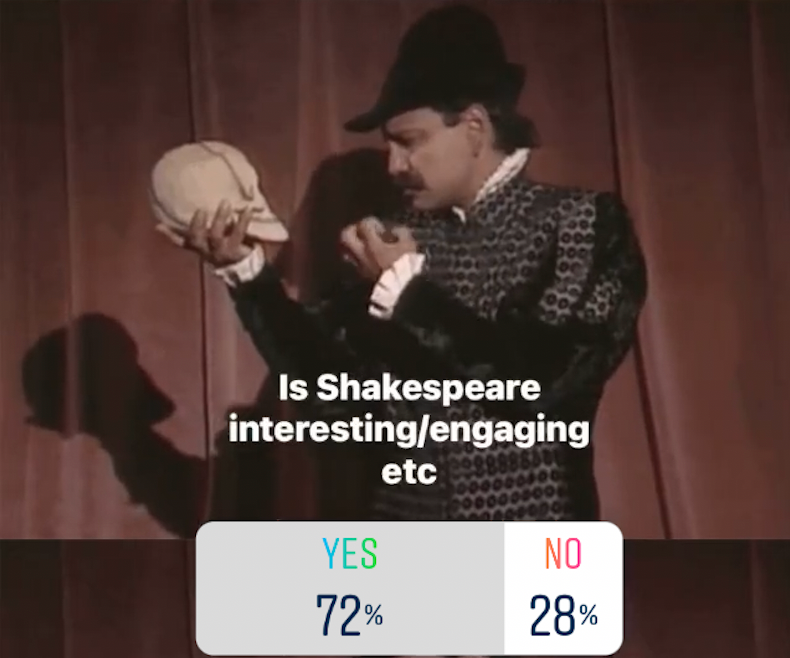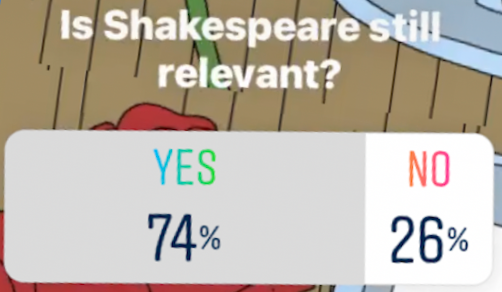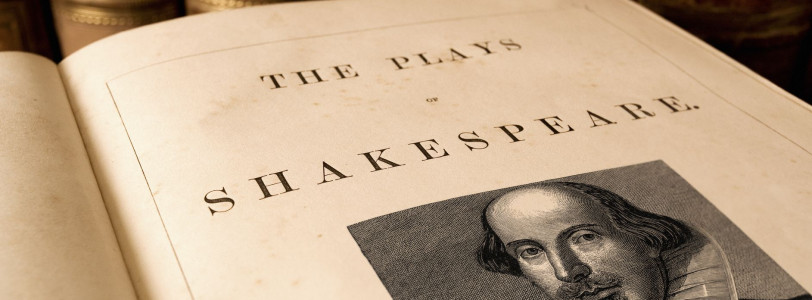A Brief Introduction
Shakespeare was born in 1564 and started his theatre days as an actor. Being a member of the acting company The Chamberlain's Men, Shakespeare eventually gained access to the funds that made putting his plays on stage possible. His works were incredibly popular, and after becoming a shareholder in the company, his work caught the attention of Queen Elizabeth I, who would become a great fan of his work. The intriguing thing about Shakespeare's work is his subtle commentary on British society during that era. These commentaries will be explored in more depth in continuing articles, but for brief enlightenment, Shakespeare was seemingly a huge advocate for social change through the writing of his plays. He was extremely critical of the state of things in Britain, but, at the risk of losing his head for criticising the ruling monarch, Shakespeare craftily set many of his plays in foreign countries, and in doing so, ironically, must have made Queen Elizabeth I feel like the superior ruler.
Along with his plays, Shakespeare was a prominent poet, writing such beautiful verses that earned him the nickname of 'The Bard', meaning poet, indicating the opinion that he is one of the greatest poets that ever lived.
Shakespeare: The 20th Century Update
The latter half of the 20th Century saw a rise in the 'reimagining' of Shakespeare. Modernised revamps such as West Side Story, and interpretations of works such as Twelfth Night and The Taming of the Shrew in the forms of She's The Man and 10 Things I Hate About You, were all box office hits, appealing to the younger generation while using foolproof stories which have remained for the last five centuries.
Some renditions use the original text to form the dialogue of the film, and one of the most famous and popular examples is Baz Luhrman's Romeo and Juliet. With the on-trend soundtrack, artistic cinematography and calculated casting of a 90s heart-throb, Romeo and Juliet was a recipe for success. Modern as the film is, there is little-to-no derision from the original story and structure of Shakespeare's text, making it the go-to lesson plan for teachers' introduction to GCSE Shakespeare.
But with the success and usage of these popular updated forms of Shakespeare's work, one has to wonder if Shakespeare massively upstages other historic authors and playwrights, not to mention modern ones who struggle to get their work out there – pushed aside by a playwright who died 405 years ago. Though this article aims to argue that Shakespeare's work is still relevant, there is certainly an issue of how much his work is focussed on in schools. This creates two problems: Reading a play, especially a Shakespeare play, is worlds away from seeing it. The second problem is that these teenagers are unlikely to be introduced to other playwrights and authors, historical or otherwise, creating a very narrow view of what the theatre can be and how language can be used by all sorts of writers. I really encourage you to take a look at this list of other playwrights whose work I admire:
April De Angelis: Playhouse Creatures
Patrick Hamilton: Rope
Thomas Middleton: The Revengers’ Tragedy
Caryl Churchill: Top Girls
Peter Nichols: A Day in the Death of Joe Egg
Duncan Macmillan: People, Places and Things
Tony Kushner: Angels in America
Enda Walsh: Chatroom
Laura Wade: Posh
I was always inspired by Shakespeare's work, but my understanding of Shakespeare was truly awakened at University, where the teaching of the subject was backed with passion and fascination, which is exactly the attitude Shakespeare should be met with if it is insisted that it be taught in schools. This is the same as any other subject. Having studied what I have of theatre, I can only insist that any play cannot just be read, least of all Shakespeare’s, whose use of language is so far from our own today. This is the biggest problem that schools face; it is why films are a popular substitute for expensive theatre trips, which is where the real issue lies.
Changing Attitudes?
Contrary to what many may think, Shakespeare’s work is still popular among young people, something I have found from several quick-fire polls I created over social media.


In addition, it would seem that movie remakes have done their job, reimagining the old text, and updating the stories, but now young people want to go the other way. Many poll answers described reimagined Shakespeare plays as ‘cringey’ and ‘harder to understand’. For a time, remakes were the ‘in thing’, but it seems that a large majority of young people believe that if one is going to watch Shakespeare, there is no need to necessarily 'update it'. To understand it, it is considered important to watch it as it was originally intended, appreciating the historical circumstances. Young people can draw parallels themselves without the need for spoon-feeding. Sometimes the lessons we learn from his work become more apparent to us when we have to find them than if they were told to us plainly. It just has to be taught the right way.
'The be-all and end-all' ... yes, Shakespeare invented this phrase too!
There are numerous things about Shakespeare's work that keeps us coming back to it, but if I were to narrow it down specifically to the most unique and identifiable features for me, I would point out two main things. The first is his ability to craft 3-dimensional characters that, though it may require an up-to-date costume, many people can still recognise and empathise with today. The second is his inventive and genius use of the English language. Here is a list of just some of the phrases that I hear regularly that were first coined by Shakespeare:
Good riddance
Forever and a day
It's Greek to me
Wild goose chase
As good luck would have it
A laughing-stock
Fair play
I shall close off with a quotation which I think befits Shakespeare's work today:
“To me, fair friend, you never can be old”
— Sonnet 104, Line 1









0 Comments